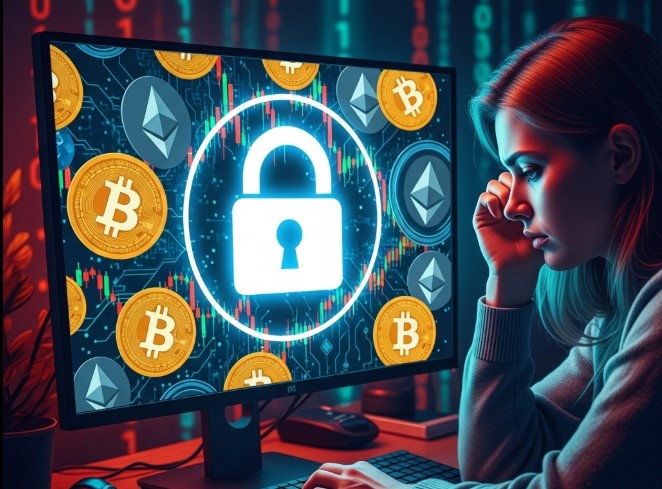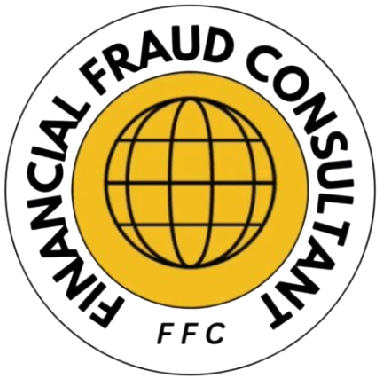
The gut-wrenching realization that you’ve been scammed out of your cryptocurrency can be a deeply distressing experience. In the volatile world of digital assets, where fortunes can be made quickly, unfortunately, so too can they be lost to sophisticated and often ruthless scammers. If you’re reading this, you might be grappling with this very situation. Know that taking swift and informed action is paramount. This guide will walk you through the immediate steps you need to take to maximize your chances of crypto recovery from scam.
Immediate Actions: Securing Your Digital Life
The moments after realizing you’ve been scammed are critical. Your priority should immediately shift to damage control and preventing further loss.
A. Secure Your Remaining Accounts
The first step is to lock down any other access the scammer might have gained or could potentially exploit. This means immediately changing the passwords for all your cryptocurrency wallets, exchange accounts, email addresses, and any other linked services. Choose strong, unique passwords that you haven’t used before. Consider using a password manager to help generate and store complex passwords securely.
Furthermore, enable or strengthen Two-Factor Authentication (2FA) on every account that supports it. This adds an extra layer of security, requiring a second verification step beyond just your password. Many major exchanges offer guides on setting up 2FA; for example, you can often find instructions on platforms like Coinbase’s help center [Search “Coinbase enable 2FA” on Google]. Finally, review the applications that have access to your wallets or exchanges and revoke access for any that seem suspicious or unfamiliar.
B. Document Everything Meticulously
Evidence is crucial if you hope to report the scam effectively. Take screenshots of all communications with the scammer, including messages, profiles, and any website links they provided. Record the transaction IDs (also known as transaction hashes or TXIDs) of the fraudulent transfers. You can usually find these on the blockchain explorer relevant to the cryptocurrency involved. For example, for Ethereum transactions, you would use Etherscan [Go to etherscan.io and search for your transaction hash]. Note down the exact dates and times of all interactions and transactions, as well as any other details you can recall about the scam. Preserve any website addresses or social media profiles associated with the scam.
Reporting the Scam: Where to Go for Crypto Recovery Assistance
While the chances of immediate recovery can be slim, reporting the scam is vital for several reasons, including potentially aiding investigations and preventing future victims.
A. Reporting to Cryptocurrency Exchanges and Platforms
If the scam involved a specific exchange or platform (e.g., a fake investment platform or a scammer impersonating customer support), notify them immediately. Provide them with all the documentation you’ve gathered. They may be able to flag the scammer’s account or provide information that could be helpful. Most exchanges have support pages with instructions on reporting security incidents.
B. Reporting to Law Enforcement and Regulatory Bodies
Depending on your location, there are several authorities you should consider contacting. Your local police department, especially if they have a cybercrime unit, should be informed. Additionally, federal agencies like the Federal Trade Commission (FTC) in the United States have a dedicated website for reporting fraud [Search “FTC report fraud” on Google]. In the United Kingdom, you can report to Action Fraud [Go to the Action Fraud UK website]. Research the relevant agencies in your country. Furthermore, if the scam involved a regulated cryptocurrency activity, consider reporting it to any relevant cryptocurrency regulatory bodies in your jurisdiction.
C. Importance of Reporting
Even if immediate retrieval of your funds seems unlikely, reporting contributes to a broader understanding of scam tactics and can help law enforcement track down perpetrators over time. It also helps to raise awareness and potentially prevent others from falling victim to similar schemes.
Read more on Fraudulent Investment Analysis: Exposing Scams and Recovering Your Funds
Understanding the Reality of Crypto Recovery
It’s crucial to have realistic expectations about recovering your stolen cryptocurrency.
A. The Challenges of Recovering Cryptocurrency
The very nature of many cryptocurrencies – their decentralized and often anonymous nature – makes tracing and reversing transactions incredibly difficult. Once a transaction is confirmed on the blockchain, it is typically irreversible. Scammers are also adept at quickly moving funds through multiple wallets and across different exchanges, further obscuring the trail. Therefore, while hope isn’t entirely lost, understand that successful recovery by authorities is often a complex and lengthy process with no guarantee of success. This is why legitimate crypto recovery services are rare and often operate on a success-based fee structure.
B. Be Wary of “Crypto Recovery Services Scams”
Tragically, individuals who have already been victimized are often targeted again by so-called “crypto recovery services.” These scammers prey on the desperation of victims, promising they can recover the lost funds for an upfront fee. These are almost always scams themselves. Legitimate law enforcement or recovery professionals will rarely, if ever, ask for upfront payments. The U.S. Commodity Futures Trading Commission (CFTC) has issued warnings about such scams [Search “CFTC crypto recovery scams” on Google]. If someone contacts you guaranteeing they can get your crypto back for a fee, treat it with extreme suspicion. Always thoroughly vet any purported crypto recovery services and be skeptical of anyone guaranteeing results.
Read more on Bank & Wire Fraud Recovery: Expert Help for Victims of Financial Theft
Learning and Moving Forward: Prevention for the Future
While dealing with the aftermath of a scam is difficult, it’s also an opportunity to learn and protect yourself better in the future.
A. Analyzing How the Scam Occurred
Take some time to reflect on the events that led to you being scammed. What tactics did the scammer use? Were there any red flags you might have missed? Understanding the methods employed can help you avoid similar scams in the future.
B. Educating Yourself on Common Crypto Scams
The world of cryptocurrency scams is constantly evolving. Familiarize yourself with common tactics such as phishing attacks, “rug pulls,” fake Initial Coin Offerings (ICOs), and sophisticated social engineering scams. Reputable cryptocurrency platforms often have educational resources; for instance, Binance Academy offers articles on security [Go to Binance Academy and search for “security”].
C. Best Practices for Crypto Security
Moving forward, adopt robust security practices. Use strong, unique passwords for all your crypto-related accounts. Always enable 2FA. Be extremely cautious of unsolicited messages, emails, or offers that seem too good to be true. Independently verify any information you receive, especially regarding investment opportunities. Stick to reputable and well-established cryptocurrency exchanges and wallets. Never share your private keys with anyone.
Emotional and Psychological Impact
Being scammed out of money, especially cryptocurrency, can have a significant emotional and psychological impact. Feelings of shame, anger, frustration, and helplessness are common. It’s important to acknowledge these feelings and not to blame yourself entirely for the scammer’s deceitful actions. Reach out to trusted friends, family, or support groups if you need to talk about your experience. Remember, you are not alone, and many others have unfortunately fallen victim to similar scams.
The immediate aftermath requires swift and decisive action if you’ve been scammed out of your cryptocurrency. Secure your remaining digital assets, meticulously document everything, and report the incident to the appropriate authorities. While the path to crypto recovery from scam may be challenging, understanding the realities and being wary of further scams, especially those masquerading as crypto recovery services, is crucial. Ultimately, learning from this experience and adopting stringent security practices will be your best defense against future threats in the digital asset space.




